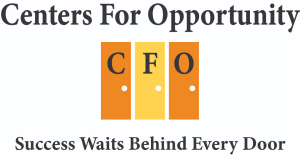May 2025

In honor of Mental Health Awareness Month, we proudly champion the theme
‘Mental Health Matters: Embrace, Empower, Evolve.’
This initiative centers on three tenets: deepening our understanding of mental health, equipping individuals with actionable self-care tools, and fostering personal growth through resilience and compassion. Together, we can remove stigma, nurture well-being, and inspire a collective journey toward healing and empowerment.
Mental health is the foundation of how we think, feel, and connect with others.
It is important for our overall well-being and influences every aspect of our lives. Taking time for self-care can ease stress, lift your mood, build confidence, and strengthen your ability to cope with challenges.
Self-care helps you progress.
Self-care is not a luxury; it’s a necessity. Engaging in self-care routines has been clinically proven to reduce or eliminate anxiety and depression, reduce stress, and increase happiness. By prioritizing self-care, we build resilience against life’s stressors and enhance our capacity to love and support others. You are worth it.
“Taking care of yourself doesn’t mean me first, it means me too.”
L.R. Knost
The Roots of the Resistance to Talk About Mental Health
Mental health is a universal part of being human—yet many still hesitate to talk about it. Here are some potential reasons why.
Stigma & Stereotypes
- Myth: “Mental health struggles are a sign of weakness.”
- Reality: 1 in 5 adults experiences mental illness annually (NAMI). Conditions like anxiety or depression are medical issues.
Cultural & Generational Silence
- Many communities treat mental health as a “private matter” or taboo. Older generations, raised in eras of silence, may view discussions as “oversharing” or think you are weak if you acknowledge the need for help. Younger generations openly understand and embrace these concerns.
Fear of Being Vulnerable
- Admitting struggles can feel like losing control or failing to “have it all together.” Asking for help is actually a sign of courage as we all need support from others at times. By asking for help, you are demonstrating self-love and self-care.
Misinformation
- Misconceptions like “Therapy is only for crises” or “Medication changes who you are” deter people from seeking help.
It’s Costly
- Many health insurance plans cover the cost of mental health treatments. Programs such as those offered by CFO are free.
Ways to Foster Acceptance in The Community
Normalize Conversations
- Share stories (yours or those of others) to demonstrate that having mental health challenges is a natural part of life and that sometimes people need help to cope with certain situations.
- Try this: “I’ve been prioritizing my mental health by…”
Educate with Compassion
- Replace myths with facts:
- Myth: “People outgrow mental health challenges as they age.”
- Fact: People of all ages have mental health challenges.
Advocate for Access
- Highlight free/affordable resources:
- CFO’s programs and services
- Apps: Calm, Woebot, Insight Timer.
- Hotlines: 988 Suicide & Crisis Lifeline (24/7).
Lead with Empathy, Always!
- Never say “What’s wrong with you?” Rather, ask “How can I support you?” Words matter more than you can imagine. One ill-spoken word can derail a person’s progress, sometimes for a lifetime. Words can uplift, but they can also wound.

15 Fun Ways to Boost Your Mental Health
-
Take a Nature Break – A walk in the fresh air or listening to birds sing can lift your mood and clear your mind.
-
Get Creative – Express yourself through painting, music, or journaling—it’s a great emotional release. Once you’ve expressed yourself this way you can let the hurt and pain go and move forward.
-
Just Breathe – Try deep, mindful breathing to help you feel grounded and calm.
-
Move Your Body – Dance, stretch, walk—any movement helps release feel-good endorphins. Yoga is a wonderful way to move your whole body gently. You can even do it in your chair.
-
Unplug for a Bit – Step away from screens and reconnect with the world around you. “Doomscrolling” (looking at stressful headlines) can derail your mental health outlook and your mood.
-
Stay Connected or Get Connected – Quality time with friends or family does wonders for your heart and mind. Socialize at CFO’s centers or in our virtual groups and prosper by interacting with others.
-
Laugh Out Loud – Watch something funny or recall a good memory—laughter really is great medicine.
-
Start a Gratitude List – Write down three things you are grateful for every morning. It’s great for calming and centering you throughout the day.
-
Give Back – Volunteering not only helps others—it boosts your sense of purpose, too.
-
Cuddle a Pet – Spending time with animals can ease anxiety and bring joy. Don’t have a pet? Volunteer at a local animal shelter. It’s great for you and them.
-
Try Something New – Explore a hobby you’ve never tried before. Learning new things expands your horizons.
-
Rest and Recharge – Don’t underestimate the power of a good night’s sleep.
-
Light a Diffuser – Calming scents like lavender can create a peaceful space.
-
Listen to Music That Moves You – Let music guide your mood and emotions.
-
Talk it Out – Don’t be afraid to reach out—sharing what’s on your mind helps lighten the load. At CFO, we are GREAT listeners!

Peer Support and How it Helps With Mental Health Recovery:
At CFO, we utilize peer support to help those we serve learn and grow. All of our staff are trained peers who have experienced similar challenges as those who seek our help. This natural empathy helps break down barriers and encourages personal growth. The following are ten misconceptions about peer support:
- Myth: “Peer support specialists (PRS) aren’t qualified to help.”
Fact: PRS staff undergo rigorous training and often hold certifications. Many combine lived experience with formal education to help others effectively. - Myth: “Peer support is just venting.”
Fact: Peer support is a structured, goal-driven process focused on empowerment, skill-building, and actionable strategies—not just casual conversation. - Myth: “Only people with severe issues need peer support.”
Fact: Peer support benefits anyone navigating life’s ups and downs—stress, transitions, grief, or everyday challenges. No struggle is “too small.” - Myth: “Peer support replaces therapy.”
Fact: It’s a powerful complement to clinical care, offering community and shared understanding—but it doesn’t replace licensed therapy or medical treatment. - Myth: “PRS staff give medical advice.”
Fact: They offer coping strategies and encouragement, not counseling or medical guidance. - Myth: “Peer support groups are depressing.”
Fact: CFO’s groups are safe spaces for hope, connection, and practical solutions. Many participants leave feeling uplifted and less alone. You’ll often hear a lot of laughter in groups as people commiserate and relate to what each other is going through. - Myth: “You need to share your story publicly.”
Fact: Participation is always voluntary. You’re welcome to listen, observe, and share only when you feel ready. Often in our virtual groups, new members will join without their cameras on and won’t say anything. By the end of the session, their cameras are often on, and they don’t want to leave because they’ve enjoyed the experience so much. - Myth: “Peer support is only for certain conditions.”
Fact: It’s versatile! Peer support exists for addiction recovery, workplace stress, parenting challenges, for First Responders, chronic illness, grief, and more. - Myth: “Peer supporters can’t help if they haven’t experienced my exact struggle.”
Fact: Shared principles—like resilience and self-advocacy—create bridges of empathy, even across different lived experiences. - Myth: “Peer support is ineffective.”
Fact: Research by the Substance Abuse and Mental Health Services Administration shows peer support improves recovery outcomes, reduces hospitalizations, and strengthens community ties.
Peer support is about walking alongside someone with empathy, hope, and without judgment.







